Ants are fascinating creatures that can serve as beneficial insects or, in some cases, unwelcome pests. Regardless of your opinion of them, their resilience, fortitude, and endurance are truly admirable.
So, how long do ants live? Ant queens typically survive for up to two decades under proper conditions, whereas male ants usually die just a few weeks after mating. Worker ants, on the other hand, can live for several months, though external factors can also influence their lifespan.
Further in this guide, we provided information about the lifespan of some specific types of ants and the environmental conditions that affect them. We didn’t only provide this information but we also discussed their life stages because that is also important when talking about their ant life expectancy. So, let’s start with this helpful guide!
The Average Ant Life Cycle
Eggs
Ants start out as eggs. The only egg-layer in a colony is the queen, and fertilized eggs develop into female worker ants. Every unfertilized egg develops into a male ant, and the queen can only mate with these ants. Depending on the ant species, eggs will hatch in a few weeks.
Young Ants
The larvae, or young ants, are microscopic worms that hatch from the ants’ eggs. Given that they must be continuously fed by other active ants in order to survive, this is one of the most critical life stages for the ant.
Larval ants go through a variety of pupation stages, each of which results in an increase in size.
Adult Ants
An ant is completely grown and will maintain the same size for the remainder of its life until it fully emerges from its pupation stage or cocoon. The entire process can take a month or two, therefore the majority of male ants are developing longer than they are permitted to do.
What Time of Year Do Ants Appear?
The worker ants emerge to seek for food when the mild weather returns in March, signaling the beginning of spring. Until late September or whenever the weather starts to cool off, they are frequently seen.
Because of this, ants are mostly connected with the summer, when humans are outside more often, eating, and drinking, drawing ants’ attention.
Average Ant Lifespan
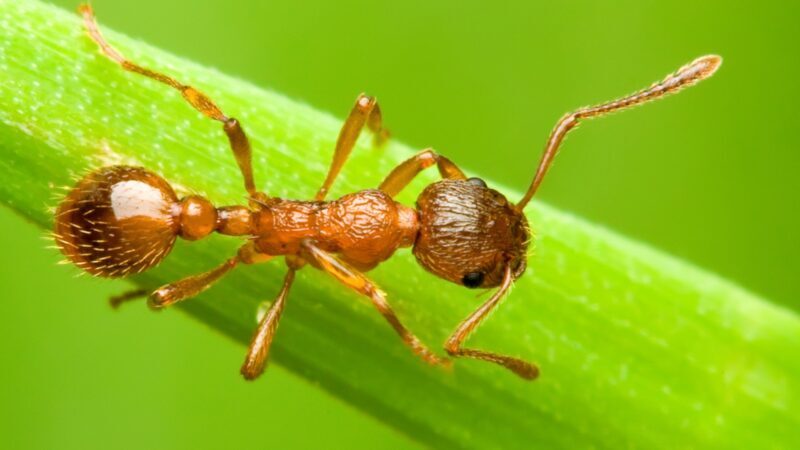
The average lifespan of an ant is determined by several factors, including the species of ant, caste, and environmental factors.
Ant colonies have a hierarchical caste system, consisting of males, sterile females (also known as worker ants), and queen ants. Each caste has a specific purpose within the colony, and their lifespan is adapted to their role. Males have the shortest lifespan, as their sole purpose is to mate with the queen, after which they usually die within a week.
Worker ants, which comprise the largest part of the colony, are sterile females. The queen produces them to collect food, maintain and protect the colony, and tend to the needs of the queen and larvae. Under good living conditions, the lifespan of worker ants can vary from a few weeks to a few months, although there have been cases where worker ants have lived up to several years.
Queen ants have the longest lifespan of all the castes, as their primary role is to produce and lay eggs. Depending on the species, queen ants can live for several years to several decades. For instance, some black garden ants can live up to 15 years, while carpenter ants can live for 7 to 10 years.
Environmental factors, such as temperature, humidity, and food availability, also play a significant role in the lifespan of ants. Adapting to various environmental conditions can affect their lifespan and ability to thrive. Therefore, understanding the different factors that impact an ant’s lifespan is crucial for comprehending its behavior and survival strategies.
Factors That Impact an Ant’s Lifespan
The following are the primary factors that affect an ant’s lifespan:
- Some ant species have extraordinarily long lifespans, but those of other ant species can only last a few months.
- Drones are produced from unfertilized eggs by male ants. A drone’s only function is to impregnate a queen before it perishes. As a result, a male ant usually lives for about a week after attaining maturity. Contrarily, most of the colony is made up of female ants, who, depending on their species, can survive for a few years.
- The colony suffers during times of hunger and drought, and ants’ lives may be cut short by starvation, thirst, or even cannibalism because the queen would eat other ants to keep the colony alive.
- An ant’s lifespan may be reduced by an environment that is excessively cold or wet because it is unsuitable for habitat.
- A predator, an invading ant that attacks, a war between ants and termites, or a skilled exterminator are all potential threats that could shorten an ant’s life span.
Different Types of Ants and How Long Do They Live?
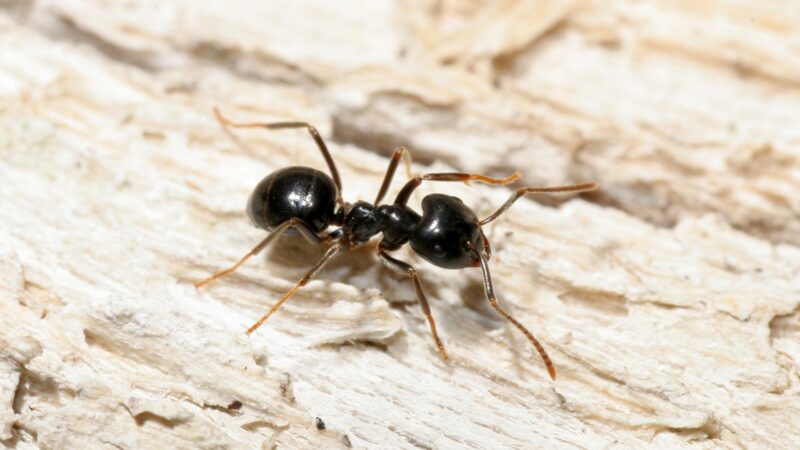
Fire Ants
Fire ants are relatively short-lived insects, with an average lifespan that varies depending on their role in the colony. The queens typically live between 2 and 6 years, while male ants die just a few days after mating with the queen.
Worker ants, on the other hand, have a lifespan that ranges from just a few weeks to a couple of months. The temperature within the nest and the size of the ant play a crucial role in determining its lifespan. Smaller worker ants generally have a lifespan of only a few weeks, while larger ones can live up to 6 months.
Carpenter Ants
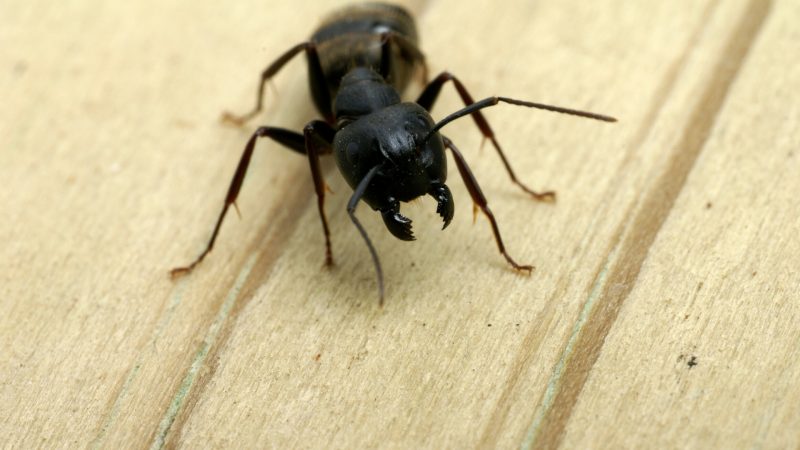
Carpenter ants queens live somewhere between 7 to 10 years and sometimes up to 20 years (depending on the conditions), while worker ants live up to a year. Male ants like in every other species of ants die a couple of weeks after mating.
Related: How to Get Rid of Carpenter Ants Without an Exterminator
Flying Ants
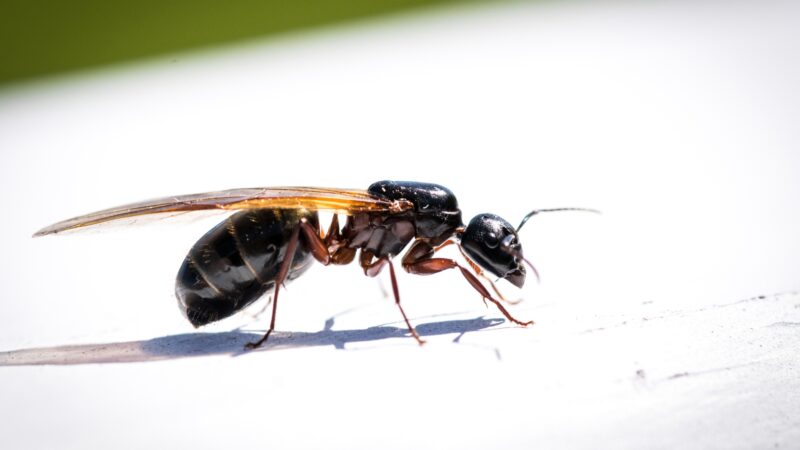
Flying ants have a slightly longer life span, with queens living for 15 years to a couple of decades. Worker ants can live up to a year, and male ants die quickly after mating with the queen, like in all other ant species.
Sugar Ants
The lifespan of the sugar ant queen is around 7 years on average, while worker ants live up to only two months, which is quite shorter than most other worker ants.
Related: How to Get Rid of Sugar Ants in the House: A Complete Guide
Bullet Ant
These ants, known for their painful sting usually live up to three months, while their queens can live for a couple of years. Their lifespan is somewhat shorter than most other ant species.
Argentine Ants
Argentine ant queens can live up to 7 years, while ant worker’s lifespan is usually between 6 and 9 months depending on the environment and food supply. Of course, in some cases, queens lived for far longer, but those cases are really rare.
Harvester Ants
Harvester ant queens can live up to 15 years. There are also recorded cases of their queens living for almost 20 years. They are considered to be one of the ant species that have a pretty long lifespan. On the other hand, the harvester worker ants’ lifespan is only up to 6 months on average.
Black Garden Ants
Black garden ants are known for their long lifespans and their queens typically live for 15 years. But there are even a few cases where they have lived up to 30 years. Their worker ants can easily live up to a year.
If the colony is strong, with a lot of food, their ant queens will produce a large number of worker ants. This helps to lengthen the queen’s life.
Related: How to Get Rid of Black Ants: A Complete Guide
How Long Does the Queen Ant Live?
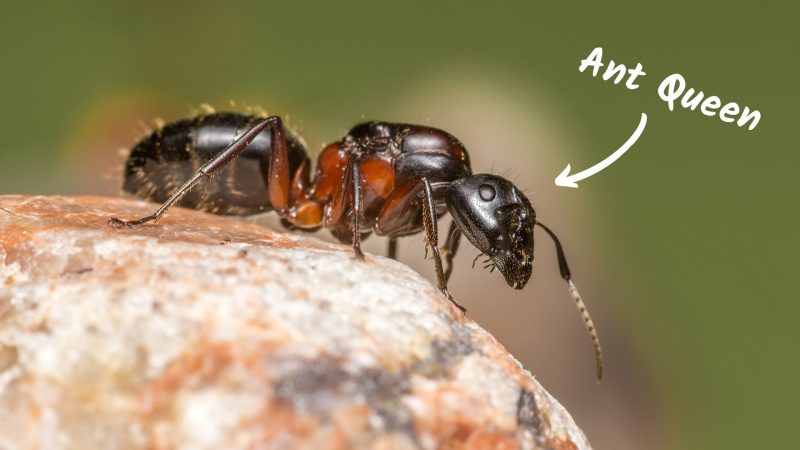
Queen ants have the longest lifespan among all the castes because it is their responsibility to fertilize the eggs and produce offspring. Most of these eggs become sterile females that help maintain and grow the colony. However, some eggs may become fertile females, leaving the colony after mating to start a new one.
The lifespan of a queen ant can vary depending on her living conditions, but on average, it is usually a couple of years. In some cases, queen ants have been known to live up to 15 years, and in rare cases, even for a few decades. The length of the queen’s lifespan depends on several factors, including the colony’s location, environmental conditions, and the ability of the ant colony to protect and care for the queen.
How Long Have Ants Lived on Earth?
Ants have been roaming the earth for an astonishing 170 million years! These tiny creatures probably first appeared during the Jurassic period, though initially, their numbers were far lower than other insects. Why? It was mainly due to the lack of flowers and blossoming plants.
But after 70 million years of existence, ants flourished in greater numbers, especially with the development of flowers and fruits. With these new food sources came a more stable and reliable supply of nutrients that allowed ants to evolve and thrive as a species. The constant food supply allowed them to adapt and diversify, leading to over 12,000 different species of ants today!
How Long Do Ants Live Without Food?
It is difficult to determine how long ants can go without food. Although it is thought that workers can go without eating for one to two weeks before they die of starvation.
If there aren’t enough food resources to support a colony, the workers will struggle to survive while still taking care of the ant queen. The only member of the colony who cannot be replaced is the ant queen.
The colony perishes if the ant queen does. The ant queen will turn to eating her own eggs and larvae before starvation before this occurs.
How Long Do Ants Live Without Water?
Due to the abundance of water in practically every location that ants are found in, it has been challenging to determine how long ants can survive without water in the wild. Ants can live without water or hydration for about 5 days.
How Long Do Ants Live in an Ant Farm?
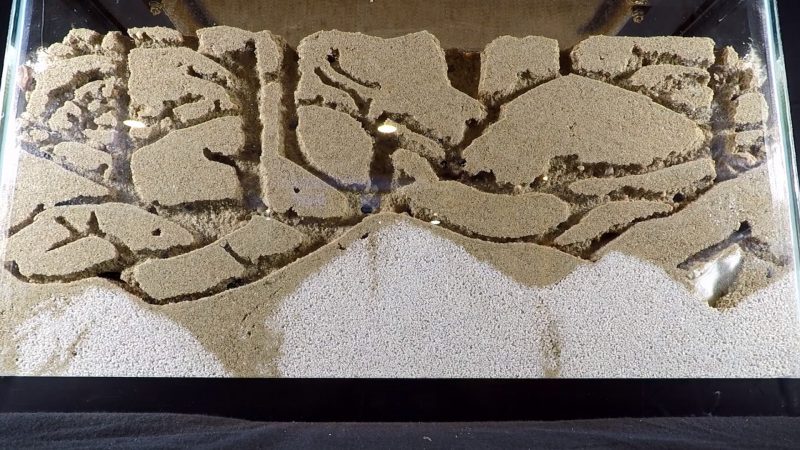
Ant farms don’t last long, because they don’t have a queen, so the colony exists only while the worker ants are alive. The lifespan of the ant farm depends on the type of ants you have on the farm. On average, this time period is a couple of months up to one year.
If you want to buy an ant farm, do a quick research on what type of ants are on the farm, and then you can check for how long the worker ants of that species of ants can live (their average lifespan). Also, it is very important to take daily care of the ants on the farm because without care they will die very quickly.
Related: Ant Size Chart and Comparison: Information and Facts
List of Sources
Schrempf A., Cremer S., Heinze J., Social influence on age and reproduction: reduced lifespan and fecundity in multi-queen ant colonies, Behavior and Genetics, University of Regensburg, Germany
Tenacity of life in ants, University of Chicago
Life Cycle, Harvard University’s Faculty of Arts & Sciences
Ant Life Cycle, Arizona State University
- How to Get Rid of Copperheads | Practical Guide - August 27, 2023
- How to Get Rid of Corn Snakes | What Makes Them Aggressive? - August 27, 2023
- How to Get Rid of Alligators | Safety Measures and Removal Methods - July 16, 2023
